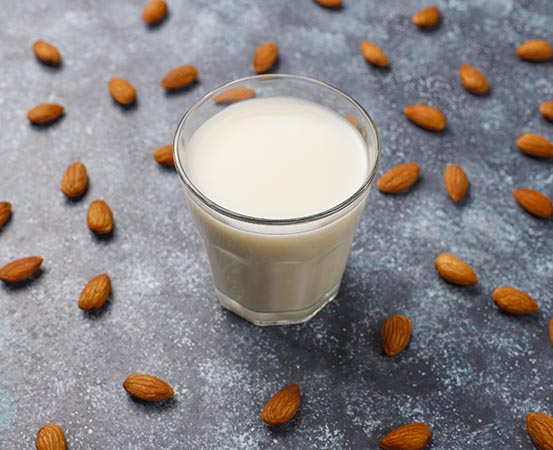
Is it okay for people with diabetes to fast? Does it help them to manage their sugar levels or could it end up as a health hazard? Experts say that while fasting has been associated with detoxifying the body, it could be tricky when it comes to people with diabetes.
According to Bengaluru-based dietitian Deepalekha Banerjee, while for some people fasting could mean not eating from morning to evening, for others it could mean sticking to selective detoxifying fruits, vegetables and liquids throughout the day and not touching carbohydrates.
Banerjee doesn’t approve of fasting when it comes to diabetes. She says that people with diabetes are usually advised to have dinner two to three hours before bedtime, and if they sleep for six to seven hours, it roughly translates into going 10 hours without food in the body.
“Diabetics are not recommended to stay without having food for an entire day,” she says. “In fact, they need to have something within an hour of waking up.”
That’s because soon after waking up the body needs energy to carry out both voluntary and involuntary activities. And if you don’t give food to the body, it breaks down protein from the muscles and produces energy in large amounts.
“This makes fasting sugar spike up and also causes muscle degeneration,” says Banerjee. In some cases, it can also lead to hypoglycemia (low blood sugar).
Also, non-diabetics usually consume fruits throughout the day to detoxify their system while fasting. But people with diabetes can’t do so because their sugar levels will shoot up because of excessive fructose.
So, if fasting is important, people with diabetes need to strike the right balance by
- choosing the right number of hours that suit their sugar levels;
- choosing suitable detoxifying foods or liquids (salads, nuts, fibrous fruits, buttermilk) to be consumed during the fasting period; and
- breaking the fast by including the right kind of foods as guided by their nutritionist.
How best to break a fast
Bengaluru-based Soumita Biswas, chief nutritionist, Aster RV Hospital, says that people with diabetes should be mindful of how they break their fast for various reasons. She suggests the following as ideal choices for breaking a fast:
- A glass of warm water, which aids digestion
- Buttermilk
- Vegetable soups
- Coconut water
- Dried fruits such as almonds, walnuts and pistachios.
“After maybe half an hour they can have food comprising chapatis, vegetables and a portion of protein,” she says.
Banerjee cautions that people with diabetes should never break their fast with food rich in simple carbohydrates (like refined flour and sugar) and processed food — since it will lead to a sudden sugar surge.
She too recommends choosing protein- and fibre-rich foods like chana (black gram), beans or millets over simple carbs after fasting. “Stick to simple salads or vegetable preparations teamed with curd or buttermilk,” she says.
Carbohydrates can be consumed in the form of complex carbs like millet (ragi, jowar, bajra) rotis. The idea of having more complex carbs is to ensure that the high dietary fibre regulates digestion and doesn’t let sugar levels surge.
Instead of red meat, people with diabetes can choose chicken breast or baked fish as their protein. “Vegetarians can include beans in salads or main course to keep themselves full and satiated,” says Biswas.
Deep-fried or spicy food should be avoided as it can be heavy on the stomach and makes sugar levels rise.
On the day of fasting, people with diabetes are asked not to take medication as sugar levels can drop further. “If they have a high HbA1c [average sugar levels for the past two to three months], we do not recommend fasting at all,” says Biswas.
Fast under supervision
According to Delhi-based dietitian Ishi Khosla, overweight people with diabetes can fast to lose weight and reach a state of remission from the condition but it should be done only under supervision.
Biswas says if weight loss is the reason for fasting, then people with diabetes can simply follow a diabetes-friendly diet instead of avoiding food altogether. If necessary, they can fast once a month or once a week depending on how they are able to manage their blood sugar levels. They must be in constant touch with their physician and dietitian while on a fast.
For people with diabetes, the key is to increase the protein and fibre content in their diet and reduce carbohydrates.
“A balanced diet or portion control teamed with exercise is all it takes to lose weight,” she says.
If people with type 2 diabetes are trying to adopt intermittent fasting for weight loss, then a dietitian’s advice and supervision has to be sought to ensure they eat only diabetes-friendly food after fasting. “That’s because non-diabetics on intermittent fasting are allowed regular food rich in carbohydrates, fructose (fruits), etc. but diabetics cannot do that,” she says.
Sweet cravings after fasting
If a person with diabetes gets a craving for desserts and sweets after fasting, Biswas says they can have a small portion of a fruit like mango or banana instead of processed and junk food.
She adds that it is best for people with diabetes to control or let go of their weakness for sweets. “Once you give into sugar cravings, they may increase further and it could become very tough for you to resist them,” she says.
Takeaways
It is recommended that people with diabetes should fast only under the supervision of their physician and dietitian so that sugar levels can be monitored. Post-fasting, they need to consume more fibres and proteins than carbohydrates.


















2 Responses
Very informative and insightful.
Thanks for the positive response!